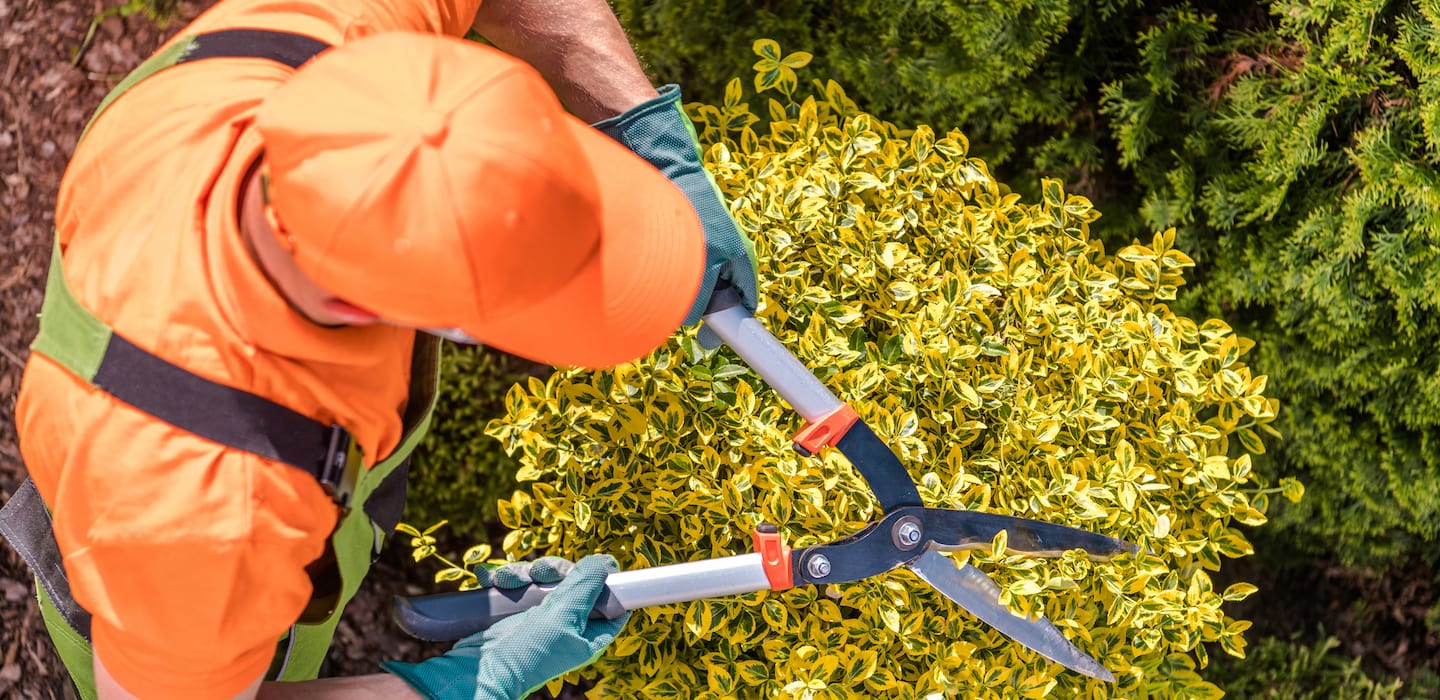As a landscaper, your everyday work entails beautifying outdoor spaces. You cooperate with mother nature to create attractive exteriors for homes and commercial spaces alike. If you have an eye for design and enjoy working outdoors, landscaping can be an excellent career choice.
But do you need a license before you start transforming lawns and gardens?
The answer depends on where you live, as well as the specific services you offer. Cutting grass is one thing, but if you specialize in more extensive transformations, you may be classified as a contractor by your state or municipality. This is your guide to understanding landscaping licensing requirements and other ways you can protect your business from legal and financial risk.
Types of landscaping regulations
When it comes to landscaping licensure, laws vary based on your location, as well as the services you provide. Before you start your business, become familiar with the following kinds of regulation:
- State – Check whether your state requires that landscapers have a license. Some states may require a license only for more in-depth projects like installing buildings sidewalks and driveways, updating irrigation systems, and planting shrubs and trees.
- Local – Even if your state does not require a license, check on your county and city laws, too.
- Pesticide application – The EPA regulates pesticide application due to the inherently risky nature of the work (for both landscapers and for public health). If you apply pesticides, you need a license.
Next, we’ll take a closer look at how you can obtain a license should you need one in your location.
Landscape contractor licenses
States including Alabama, Alaska, California, Hawaii, Louisiana, Maryland, Minnesota, Nevada, North Carolina, Oregon, Tennessee, and Utah classify landscapers as “landscaper contractors “ (or use a similar designation).
Contractor work generally requires specialized tools and knowledge, as well as safety training. These regulate this work through licensure. Even if your state does not appear on this list, you may still need a license, depending on local laws.
So how do you get one?
In general, landscaping licenses will be available in your state to persons over 18 with U.S. citizenship. In addition, you’ll need to register your business as a legal entity (like an LLC or S-Corp) and obtain a federal tax ID.
Once you’ve taken these steps, you’ll need to take and pass an exam to obtain your landscaping business license. Study up on your state’s specific requirements and education programs. Likely topics include:
- Principles of landscape design
- Practices for making job bids and estimates
- Planting methods
- Plant maintenance
- Patio and sidewalk installation
- Irrigation system installation
- Safety requirements
Once you’ve taken and passed your exam, you can pay your state’s fee and register for your landscaping contractor license. You will also likely need to provide your state with the following1:
- Your tax ID
- A surety bond
- A Certificate of Insurance
Be sure to check with your state and local laws to learn about any other requirements—and know that whether or not your state requires an exam for landscapers, you likely need an additional license to apply pesticides.
Pesticides applicator license
The EPA regulates RUPs (restricted use pesticides).2 If you focus on organic lawn care, that means you may not need a license. However, if you use commercial pesticides, you’ll need to obtain a license through your state before applying these potentially dangerous chemical substances.
Similar to the requirements for a landscaping contractor license, you will need to take an exam checking your familiarity with safe use of pesticides. Your state may have a Pesticide Safety Education Program to get you prepared. After you pass, you’ll need to provide:
- A federal tax ID
- Proof of insurance
- A yearly fee
As you can see, both kinds of licensure require proof of insurance. How do you get that? Read on to find out.
Protect your business
Landscaping carries inherent risks. Whether it’s working on a patio installation or using heavy machinery to transport plants and mulch—something could always go wrong. That’s why many states require landscapers to carry general liability insurance. Even if it’s not required by your state, insurance can help protect your business from hefty claims that might end your business before it’s really blossomed. General liability can help cover the costs of:
Bodily injury
As a landscaper, you use specialized tools. Should a client step on a stray spade and injure themself, you could be held liable.
3rd party property damage
Your clients trust you to keep their property safe while transforming their yards. Should you accidentally damage a piece of outdoor furniture, you could be held liable.
Legal fees
In a situation like the above, the client could take you to court to collect payment. While the case went to trial, you’d be responsible for your own legal fees—unless you have insurance.
Medical costs
You apply pesticides in line with state and local laws. However, should a third party have an allergic reaction after your application, you could be responsible for their medical costs associated with the incident.
Advertising errors
While you’re promoting your business, should a competitor accuse you of plagiarism, they could sue you for damages.
General liability helps you comply with local licensing laws, as well as protects your business in cases like the above.
Small business insurance for landscapers
At Thimble, our goal is to make insurance easy so that small businesses can focus on what matters—their growth. We offer insurance for the 21st century. Our flexible, on-demand policies are available by the hour, day, or month.
With Thimble, you can get a landscaping liability insurance policy in seconds. Need a Certificate of Insurance for your landscaping license? Enter a few quick details, and you’ll receive an instant quote, all without placing a single phone call. If you’re happy with your rate, purchase with a click, and you’ll receive a COI right away.
Don’t let your business get cut off at the root. Plant the seeds for long term success by teaming up with Thimble and understanding your landscaping license requirements.
Sources:








